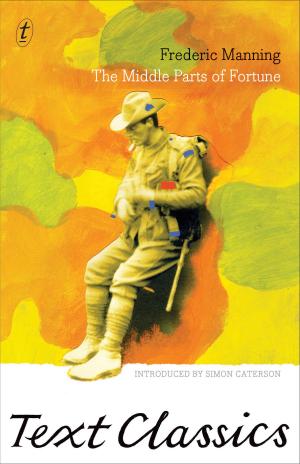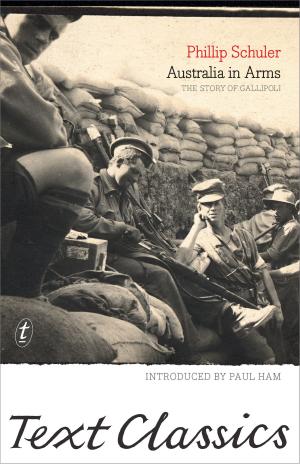| Author: | Christina Stead | ISBN: | 9781925410150 |
| Publisher: | The Text Publishing Company | Publication: | October 3, 2016 |
| Imprint: | Text Publishing | Language: | English |
| Author: | Christina Stead |
| ISBN: | 9781925410150 |
| Publisher: | The Text Publishing Company |
| Publication: | October 3, 2016 |
| Imprint: | Text Publishing |
| Language: | English |
New York, on the cusp of World War II. Robert Grant, a middle-aged businessman, lives life by his own rules. His chief hobbies are moneymaking and seduction; he is always on the hunt for the next woman to beguile and betray. That is, until he meets his match: Barbara, the ‘blondine’, a woman he cannot best.
A sardonic commentary on sexual relations and war as potent as when it was first published in 1948, A Little Tea, a Little Chat holds up a mirror to the corruption and cravenness of our late-capitalist moment.
Christina Stead was born in 1902 in Sydney. Stead’s first books, The Salzburg Tales and Seven Poor Men of Sydney, were published in 1934 to positive reviews in England and the United States. Her fourth work, The Man Who Loved Children, has been hailed as a ‘masterpiece’ by Jonathan Franzen, among others. In total, Stead wrote almost twenty novels and short-story collections. Stead returned to Australia in 1969 after forty years abroad for a fellowship at the Australian National University. She resettled permanently in Australia in 1974 and was the first recipient of the Patrick White Award that year. Christina Stead died in Sydney in 1983, aged eighty. She is widely considered to be one of the most influential Australian authors of the twentieth century.
‘[Christina Stead] is really marvellous.’ Saul Bellow
‘A sprawling character study…Callous, comical, loathsome, and tiresome, Grant also, as the David Malouf introduction notes, can sometimes stir sympathy thanks to Stead’s artistry.’ Kirkus reviews, starred review
New York, on the cusp of World War II. Robert Grant, a middle-aged businessman, lives life by his own rules. His chief hobbies are moneymaking and seduction; he is always on the hunt for the next woman to beguile and betray. That is, until he meets his match: Barbara, the ‘blondine’, a woman he cannot best.
A sardonic commentary on sexual relations and war as potent as when it was first published in 1948, A Little Tea, a Little Chat holds up a mirror to the corruption and cravenness of our late-capitalist moment.
Christina Stead was born in 1902 in Sydney. Stead’s first books, The Salzburg Tales and Seven Poor Men of Sydney, were published in 1934 to positive reviews in England and the United States. Her fourth work, The Man Who Loved Children, has been hailed as a ‘masterpiece’ by Jonathan Franzen, among others. In total, Stead wrote almost twenty novels and short-story collections. Stead returned to Australia in 1969 after forty years abroad for a fellowship at the Australian National University. She resettled permanently in Australia in 1974 and was the first recipient of the Patrick White Award that year. Christina Stead died in Sydney in 1983, aged eighty. She is widely considered to be one of the most influential Australian authors of the twentieth century.
‘[Christina Stead] is really marvellous.’ Saul Bellow
‘A sprawling character study…Callous, comical, loathsome, and tiresome, Grant also, as the David Malouf introduction notes, can sometimes stir sympathy thanks to Stead’s artistry.’ Kirkus reviews, starred review















